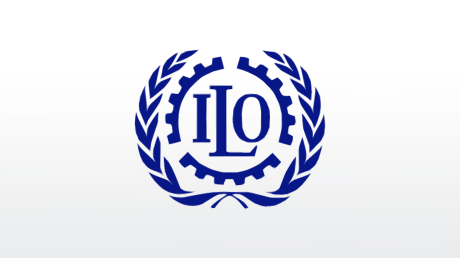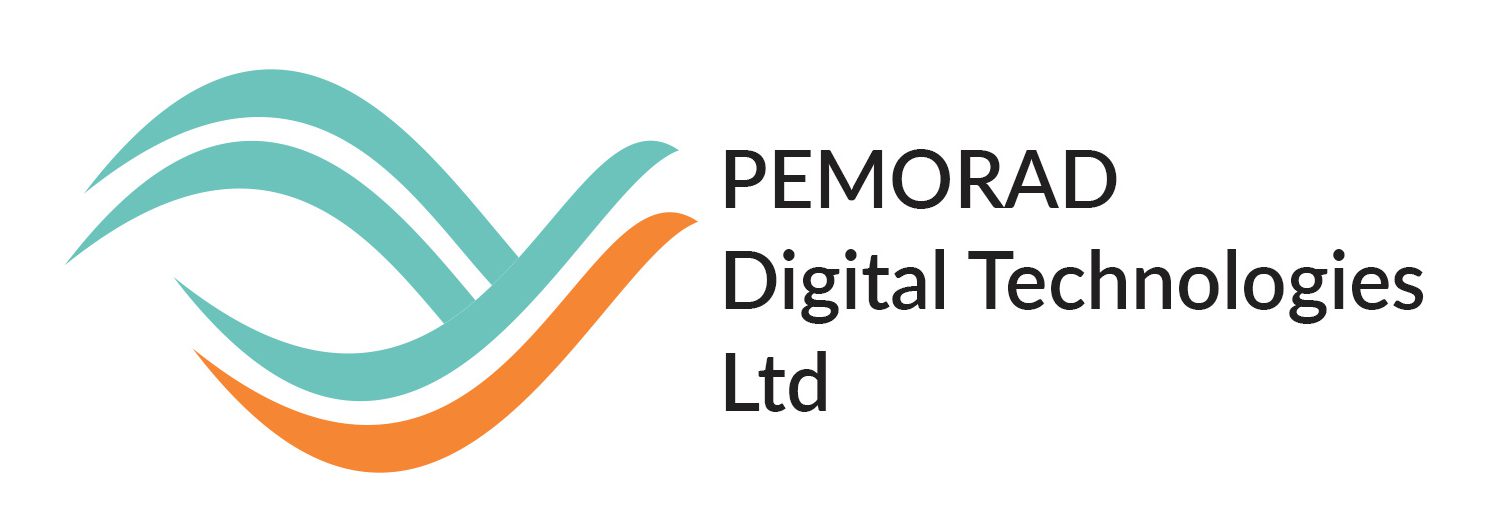Application Deadline: July 11, 2021
Background
The world is witnessing the highest levels of displacement on record. In recent years, forced displacement has increased in scale and complexity. According to the UN Refugee Agency (UNHCR), in 2019 there were over 79.5 million forcibly displaced persons, of whom 30.2 million were refugees and asylum-seekers. Eighty-four percent of the world’s displaced are in developing countries and more than half are women. As displacement has become increasingly protracted, responses are focusing more on durable solutions backed by more dignified, inclusive and comprehensive development programmes for refugees and the communities that host them. The aim is to enhance self-reliance, facilitate empowerment and strengthen social cohesion.
These responses need to be rapidly consolidated through significant international support built on a foundation of robust and effective partnerships that maximize synergies and leverage comparative advantages. With this in mind, a new Partnership for improving prospects for forcibly displaced persons and host communities (PROSPECTS) has been formed. The Partnership spearheaded by the Government of the Netherlands, brings together the International Finance Corporation (IFC), the International Labour Organization (ILO), the UN Refugee Agency (UNHCR), the UN Children’s Fund (UNICEF) and the World Bank. PROSPECTS is targeting forced displacement situations in eight countries in East, Horn and North Africa and the Arab States: Egypt, Ethiopia, Iraq, Jordan, Kenya, Lebanon, Sudan and Uganda.
The Partnership is the concrete expression of the consensus that has emerged around the need for displaced persons and host communities to enjoy enhanced socio-economic opportunities and for children on the move to have effective and inclusive access to protection and education (New York Declaration, 2016). Benefiting from a four-year time horizon (2019–2023) and financially supported by the Ministry of Foreign Affairs of the Netherlands, the Partners, together with national and local institutions, have joined efforts to develop a new paradigm in responding to forced displacement crises, particularly through the involvement of development actors.
The Partnership hopes to transform the way governments and other stakeholders, including the social partners and the private sector, respond to forced displacement crises, by:
· fostering an enabling environment for socio-economic inclusion;
· improving access to education and protection for vulnerable children on the move; and
· strengthening the resilience of host communities.
The Partnership will also be grounded in results-based and country-led approaches. It aims to develop and implement evidence-based solutions, tailored to each context, as well as to test and learn from innovative operational solutions. The Partnership focuses on three critical areas of intervention that enable forcibly displaced persons to overcome their specific vulnerabilities and host communities to pursue their own development efforts in transformed environments. These are: education and learning; employment with dignity; and protection and inclusion.
In this partnership, ILO brings significant expertise and experience in supporting enabling environments to underpin inclusive socio-economic growth and decent work, strengthen labour markets and promote access to improved working conditions and fundamental rights at work, including through the involvement of its tripartite national constituents. The ILO stimulates labour market demand and immediate job creation through employment-intensive investment, local economic and business development and promotion of specific value chains and market systems. It provides targeted support to labour market institutions, services and compliance and monitoring mechanisms that facilitate the integration of refugees into the labour market in accordance with its strong normative foundation of international labour standards. The ILO brings also expertise on technical and vocational education and training and on the recognition of prior learning for certifying the skills of refugees to better ensure access to the labour market, and methods for assessing labour market demand to provide the right skills to refugees needed by employers.
To ensure coherent and mutually reinforcing action, the ILO connects its work under each of the three pillars through cross-cutting interventions implemented in close coordination, collaboration and complementarity with the other Partners.
Egypt Context
Egypt has registered 258,862 refugees and asylum-seekers (September 2020), 70% of which are asylum-seekers and 30% are refugees. Refugees and asylum seekers live in urban areas alongside Egyptian communities and are mainly concentrated in Greater Cairo, Alexandria and Damietta. The protection environment is generally conducive. Egypt made the choice not to have camps, promoting therefore a model of social inclusiveness. Contrary to Jordan, Lebanon and Turkey, country-specific challenges faced by refugees in accessing economic opportunities are not related to a negative perception of host communities, but mainly to difficulties in renewing residency permits (UNHCR, 2020). Moreover, the limited ability to access the formal job market lead many to establish their own start-ups.
According to the 2018 Egypt Vulnerability Assessment for Refugees (EVAR) (UNHCR, 2018), a comprehensive multi-sectoral household-level survey, 88% of refugees are severely or highly vulnerable. According to UNHCR poverty estimations of March 2019, 67% of Syrian households are unable to meet their basic needs. In order to support the most vulnerable refugees and asylum seekers around 1/3 of total Syrians were assisted with unconditional cash grants based on a series of protection and socioeconomic criteria. The percentage of Syrian refugees with insufficient access to food has increased reaching 70.3% in 2018 (compared to 63.6% in 2017). Vulnerability to food insecurity amongst Syrian refugees increases in both Alexandria and Damietta compared to Greater Cairo.
In terms of basic needs and livelihoods, refugees and asylum seekers find in Egypt a labour market characterised by high shares of informal employment (about 60%) and high unemployment in particular among graduate youth. UNHCR found that 51% of working age Syrian refugees were economically active in 2017. Syrian entrepreneurs are perceived to perform well, providing employment to Egyptians and other refugees. According to the EVAR, 41% of Syrian men were regularly employed, 38% in temporary employment and 21% unemployment. Qualitative analyses show that many were underemployed (3RP, 2019). Only 1.6% of women of working age are employed full time. Women expressed a preference for opportunities that can be performed from within their home.
In Egypt, PROSPECTS partners support initiatives with long-term impact and in line with the ongoing efforts of the Government of Egypt to build a more inclusive and productive society. The partnership, by leveraging and amplifying existing programmes, will promote a continued approach that builds bridges across thematic areas, and new and innovative solutions to the identified challenges. Each partner brings a unique set of expertise to help create a comprehensive enabling environment to ensure protection and social protection, and enhance socio-economic opportunities and education facilities for forcibly displaced persons, children on the move and host communities. The Theory of Change is developed with a multi-sectoral and multi-dimensional approach which is transcended through three inter-related programmatic and operational pillars encompassing education, employment, protection and partnership.
The first pillar, Education and Learning focuses on increasing the number of forcibly displaced persons, children on the move and host communities with quality education and training. The second pillar on Employment seeks to increase the number of forcibly displaced persons, children on the move (i.e. youth) and host communities with enhanced livelihoods and/or employment in decent work through improvements in labour market governance supporting transition to and entry into employment and formalisation. The third pillar on Protection and Inclusion aims at increasing protection, social protection and inclusion for forcibly displaced persons, children on the move and host communities through strengthening of legal, policy and enabling environment for protection, social protection and inclusion.
The ILO’ s focus and added-value to the partnership in Egypt comes through providing refugees and host communities with adequate skills to improve their employability on the one hand, for example, through technical and vocational education and training, apprenticeship programmes, career guidance and soft skills. On the other hand, the ILO programme promotes self-employment and enterprise development, for example, through enhancing the entrepreneurial skills of refugees and host communities to start and improve their businesses. In addition, through social entrepreneurship development, the ILO is aiming to address the critical issue of social cohesion within host communities, while supporting the development of social business ventures.
Objectives
The consultancy entitled, “The National Policy, Legislative and Regulatory Frameworks and Practice Review”, aims to establish baseline situations in Egypt, Ethiopia, Iraq, Jordan, Kenya, Lebanon, Sudan and Uganda, in the area of relevant policy, legislative and regulatory frameworks and current practice in terms of implementation in relation to the access of refugees to the labour markets, employment, livelihood and training opportunities, including self-employment and business development. This will provide ILO PROSPECTS programme teams a clear understanding of the current status (or not) of these frameworks and how they are being applied (or not).
Before the Partnership can begin planning its interventions around policy advocacy and supporting government and other efforts to develop or reform relevant frameworks on access to education and training, active labour market programmes, the right to work and rights at work, including social security and protection and freedom of association, an understanding of the current political, legal, and regulatory environment in regards to those with refugee status is required for each of the targeted countries.
Importantly, it will also provide a comparison on national policies and legislation against what actually happens in practice thereby revealing the capacities and abilities of government ministries, institutions, social partners and non-government actors to enact and implement and inform further capacity-building interventions.
Specific Objectives
The consultant, in close collaboration with and under the technical supervision of IMPACT Initiatives, an NGO with expertise in designing and conducting research for actors in the humanitarian and development sector, will be required to:
- Identify and review literature and secondary data sources on policy, legislation and regulations, and assess their actual implementation on the ground, thereby avoiding duplication of existing legal reviews and studies and leveraging these sources where relevant.**
- Identify relevant policies, legislation and regulations and analyse them in regards to the refugees’ access to employment, livelihood, and training opportunities, and to rights at work.
- Based on the results of the desk review and identified data gaps, conduct key informant interviews of identified national (national and governorate level) and international actors to assess the practical application of policy, legislative and regulatory frameworks and identify challenges that will need to be addressed.
- Based on the results of the desk review and identified data gaps, conduct KI interviews with refugees and host communities, and also focus group discussions in Greater Cairo, Alexandria, Damietta, to better assess knowledge and understanding of these policy, legislative and regulatory frameworks.
- Conduct validation exercises in Egypt to ensure the establishment of key recommendations going forward in terms of identifying gaps and challenges that can be addressed through the PROSPECTS and related programmes, including policy advocacy and supporting either policy, legislation and regulatory development and/or reform as appropriate.
- Develop Egypt country level report that summarize the main findings and possible recommendations for the PROSPECTS programme at the country level.
The consultant will be expected to conduct these activities only for Egypt, however, it is important to note the consultant’s research and subsequent report will be expected to follow a predetermined assessment framework that will allow for their findings to be comparable against other countries identified for this study. The findings from all countries will be eventually aggregated into a global-level analysis report. Further details are outlined in the methodology section below.
Scope
The scope of work would identify, examine and analyse policy, legislation and regulations in so far as these pertain to the access of refugees to labour markets, employment and self-employment (formal and informal), training, business development, other income-generating activities and social security and protection. It would also examine and allow for the comparison on identified national policies and legislation, against the ability and capacity of government ministries, institutions, social partners and non-government actors to enact and implement. Areas of focus should include:
- Current refugee, asylum and immigration policy and legislation and relevant secondary legislation and regulations, with particular focus on:
- Issues relevant to access to work (formal and informal), including but not limited to the right to work, to set up business, legal identity, access to mobile services in the context of digital learning and economy.
- Access to justice including grievance mechanisms (to protect rights at work), freedom of association, freedom of movement, access to education and training, employment services, access to employment-based national social insurance programmes, limitations on sectors and areas of work available to refugees, etc.
- This analysis will also consider mechanisms in place to govern the access of refugees to labour markets and economic opportunities, such as having to apply for work permits and the regulations and procedures applying to these systems, including quotas and fees. In addition, it will also consider naturalisation pathways open to refugees through immigration/asylum policies and regulations.
- The baselines will also examine the issue of recognition of education, vocational, academic and professional qualifications of refugees and how this process is managed, if at all, and the onward principle of refugees being able, for example, to practice technical and liberal professions.
- Where governments have established and apply the right to work for refugees, this review should examine how this works in practice, including any barriers that may affect the application of this right, for example, bureaucratic hurdles, lack of information, limited capacity of government institutions to support access to this right, behaviour and attitude of employers and national workers, etc.
- The same will apply for the right of refugees to set up businesses or cooperatives and access to financial services, looking closely at challenges they may face in accessing this right, legal and bureaucratic obstacles, lack of understanding of services they may be able to obtain, etc.
- Freedom of movement and association are two fundamental principles that support the right to work and rights at works and it will be important to examine how these rights are applied if at all and whether refugees are appropriately informed. Freedom of association and the right to collective bargaining can apply to refugees being able to join trade unions or businesses/self-employed being able to join sectoral and trade associations, including cooperatives. The other part of this analysis would examine the readiness of these national bodies to accept refugees into membership, including whether their regulations are adequate and appropriate and whether information is being shared among refugees as well as these actors.
- The above shows how important it will be for the assessment to cover policy and practice as these are important indicators to address impediments to comprehensive and fair implementation, and therefore critical information for planning and programme design.
- The review should also examine policies and national strategies (where these might exist) on a range of related issues, for example, on Employment (including apprenticeships and consideration for youth, gender and disability), Education and Skills Development (including career counselling and guidance), Vocational Qualifications and Competences (including recognition of prior learning), Social Security and Protection (including for example pensions, maternity and child benefits/allowances, health benefits, injury insurance, etc.), Small and Medium Enterprise Development and Urban, Rural and Agricultural Development (including land ownership), etc.
- It should also examine labour legislation in terms of coverage and application and whether public and private employment services can provide support to refugee job seekers.
- National development plans and strategies are also important sources of information for this assessment to understand whether refugees are included.
- Central to this broad examination is the principle of non-discrimination and equality of treatment and opportunity for refugees.
Methodology
The consultant will be provided with a global-level methodology and assessment framework developed by ILO and IMPACT to form the basis of the study. The consultant will adapt this methodology to the context of their country of study, and will be responsible for developing their own plan and tools for to collect and analyse data within the confines of the assessment framework.
The methodology will employ a qualitative comparative method using secondary data and identified primary literature sources, and combine it with external triangulation via structured / semi structured key informant interviews.
Duration
The consultancy will be for 12 weeks, starting on the 2nd of August 2021 and concluding on the 29th of October 2021.
How to apply
For individual consultants:
Interested candidates should submit the following documents:
- Curriculum Vitae,
- Technical proposal including a detailed work plan,
- Written sample of prior work, and a
- Financial proposal.
For service providers:
Interested service providers should submit the following documents:
- Technical proposal including an
- organizational capacity statement, legal registration documents,
- proposed methodology,
- detailed work plan,
- CVs of key staff involved in the project.
- Written sample of prior work, and a
- Financial proposal.
Interested applicants should submit their technical and financial proposal as well as other supporting documents outlined above via email to Carole Turcato ([email protected]) and Fatma Kaya ([email protected]) citing “Review of National Policy, Legislative and Regulatory Frameworks, and Practice: A Baseline Study for Egypt” as a subject, no later than 11 July 2021. Clarification questions may be submitted until 30 June 2021 and the ILO will respond to questions latest by 2 July 2021.
As the results of the desk review will determine the scope of the fieldwork, the financial proposal should outline an estimated budget for each deliverable/phase indicated above. The proposal should include the professional fees with a cost-breakdown including a daily fee and number of days required, travel, and validation workshops, etc. Moreover, the financial proposal should indicate the number of days to be spent travelling to project target localities in Greater Cairo, Alexandria, Damietta.
Evaluation Criteria
- CVs of proposed team members demonstrate previous experience in carrying out analytical work and legal reviews as well as qualitative research in the field of social science, and ability to lead focus group discussions and key informant interviews.
- Experience in forced displacement settings is considered as an added value.
- Sample of prior work demonstrates experience in writing high quality, concise and analytical reports.
- The proposal demonstrates a clear and realistic work plan including an engagement strategy for key stakeholders such as the ministry of labour, social partners and governmental counterparts at state level.
- The proposal demonstrates the capacity of the expert(s) to conduct analytical work in Egypt, good knowledge of the context in Egypt and clear outline of collaboration with local partners including for field work.
- The proposal and writing sample(s) demonstrate excellent command of English.
* Please refer to the Terms of Reference on the ILO PROSPECTS web-site: https://ilo.org/global/programmes-and-projects/prospects/countries/egypt/WCMS_806532/lang–en/index.htm
** The ILO undertook several studies under PROSPECTS in Egypt looking at TVET, employment services, digital economy, role of employers’ organizations and access to finance. This work will build on the findings of these studies. The role of the consultant will be to review the existing literature and propose a data collection/field work plan accordingly.
For application details, visit https://reliefweb.int/job/3749816/review-national-policy-legislative-and-regulatory-frameworks-and-practice-baseline-study






